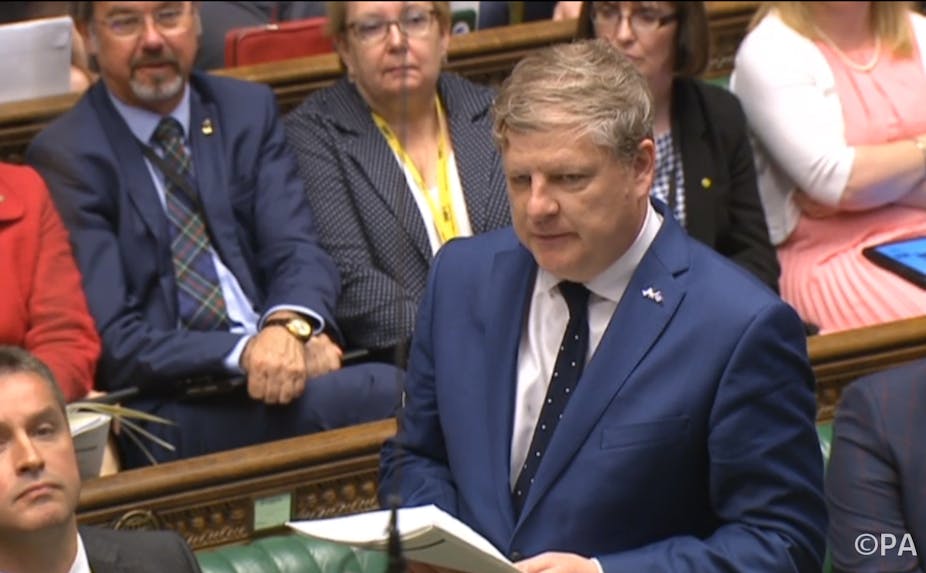Although any party which does not go into government following a general election is called an opposition party, only one gets the title of “Her Majesty’s Official Opposition”.
This is typically the largest opposition political party in the House of Commons. Winning 232 seats in the 2015 general election, the Labour Party took its place as the official opposition at the start of the new parliament last year.
Labour was – and still is – considerably larger than the nine (or eight, depending on how you classify Sinn Fein MPs, who don’t take up their seats in the chamber) other parties in the House of Commons which are not in government.
But the SNP is now making a play for that role. It has asked the Speaker of the House to name it the official opposition. Leader Angus Robertson has argued that since Labour MPs issued a vote of no confidence in their leader, Jeremy Corbyn, the SNP has more of a claim to the position. Corbyn now commands the confidence of just 40 MPs. The SNP’s Westminster leader, Angus Robertson, has 53 behind him.
After winning 56 seats in parliament, the SNP became the second biggest opposition party for the first time after the 2015 general election. Although two of its MPs have since had the whip suspended over financial scandals, it continues to hold this position.
This role has brought the party considerably more clout in the House of Commons than it had been accustomed to. Assuming the parliamentary rights previously enjoyed by the Liberal Democrats, the SNP has gained the right to ask the Prime Minister two questions each week and the chairmanship of two select committees.

But the biggest advantage to being Her Majesty’s Official Opposition is your elevated place in the House of Commons pecking order. The Leader of the Opposition (and other shadow cabinet members) get to respond first to government statements or speeches. They also get to ask the Prime Minister six questions during PMQs each Wednesday, so there is a much greater opportunity to make an impact and to really press for answers. Crucially, the official opposition party should do two key things – hold the government to account with constructive criticism and put forward a coherent set of policies of its own.
It’s no surprise, then, that Robertson is calling on Speaker John Bercow to acknowledge his party as more important in the house than Labour. The role brings with it enormous benefits, ones which the SNP would use to its advantage to strengthen its presence. And it has good reasons for doing so, even if these may not convince the Speaker himself.
For although the SNP can’t get around the fact that it has 175 fewer MPs than Labour, it does boast impressive cohesion. It also has a strong leader in Robertson, a man who has been referred to as the “unofficial leader of the opposition” thanks to his commanding performances at Prime Minister’s Questions, where he has often outclassed Corbyn.
He is also well liked and supported by his party members, with no leadership challenges on the horizon. With Labour in turmoil as Labour MPs continue plotting to oust their leader, the SNP has solid grounds for claiming that it is much better placed to fulfil the core roles of an official opposition.
Neither has this call for official opposition status come completely out of the blue. SNP members have been referring to themselves as the real opposition since last summer. In July, they staged a protest at what they felt was Labour’s failure by taking over their benches usually reserved for the official opposition in the Commons chamber.
The SNP may currently have only 54 MPs, but it would also would find it much easier to fill the shadow cabinet posts than Corbyn, who still has many positions, including the Shadow Scottish Secretary, vacant.

